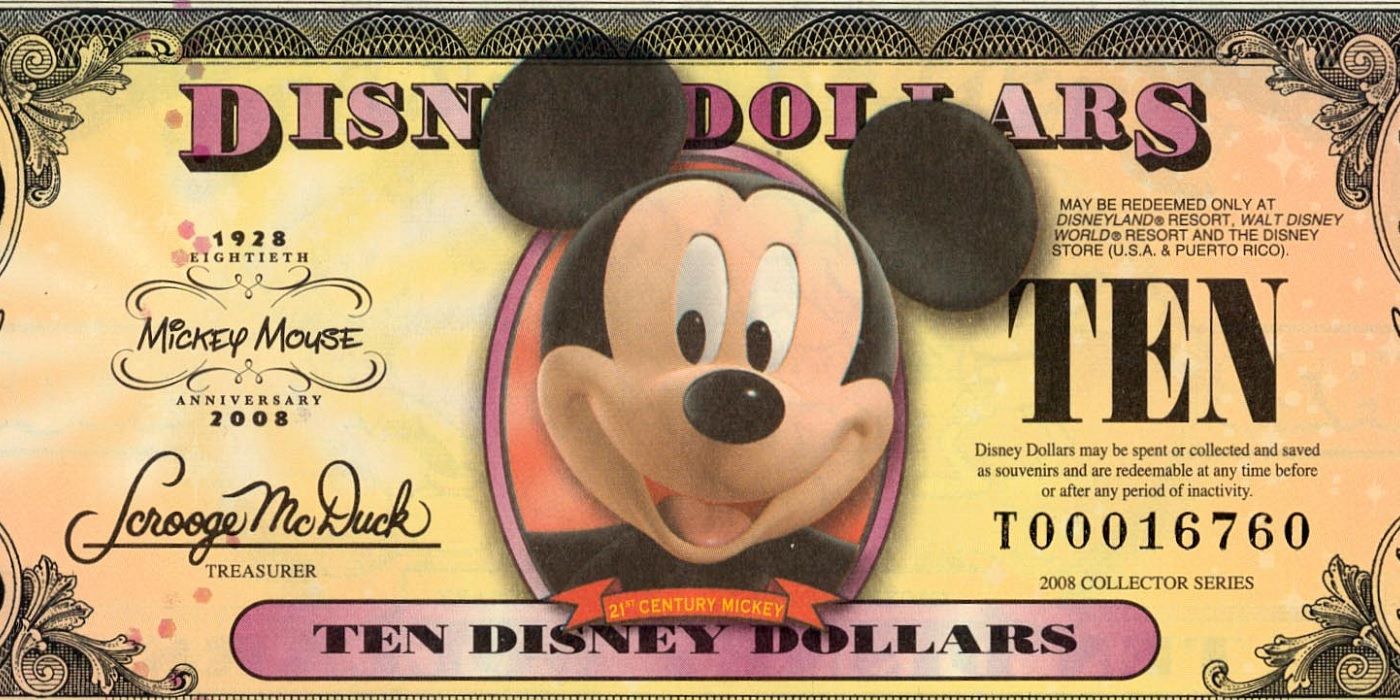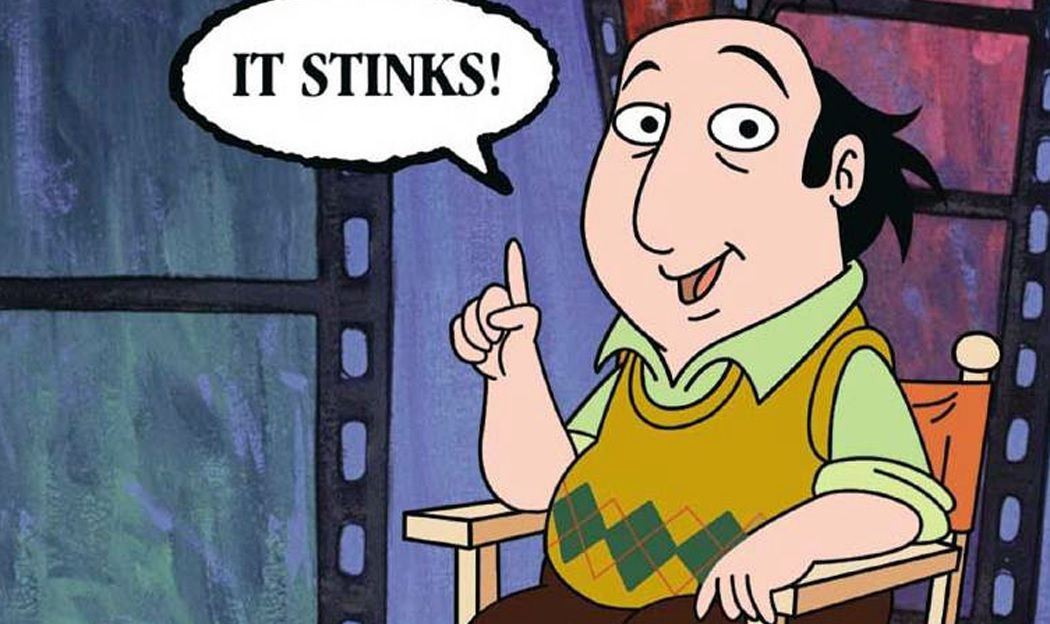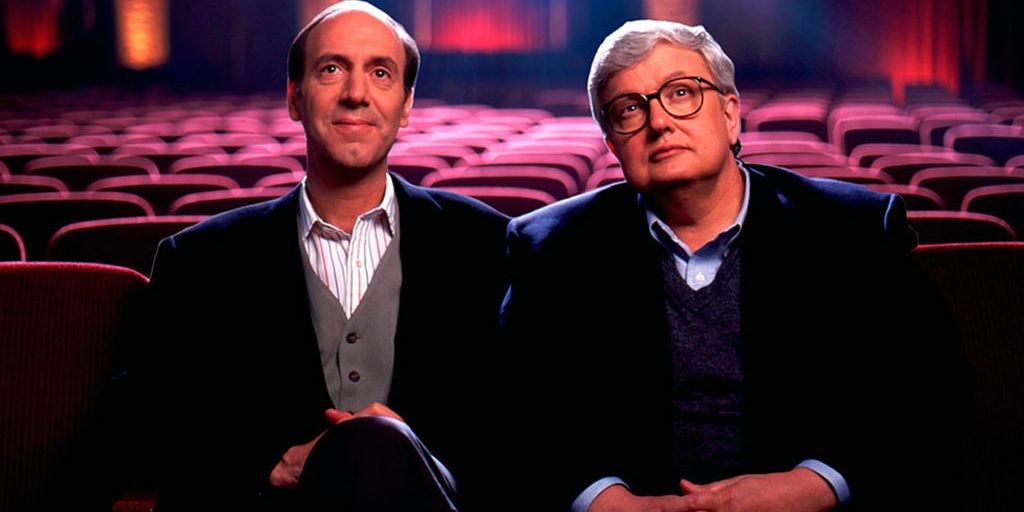Film reviewers get a lot of flack, especially in the modern age of social media and constant audience feedback. If the reviewer likes a movie that a reader didn't like, they're an idiot. If a reviewer hates a movie that a reader loved, then that reviewer is also an idiot. Common sense dictates that different people can have different opinions about things, and that's OK, but you wouldn't think it when reading the comments on most movie reviews.
This has been particularly true in the wake of Warner Bros.' much-hyped superhero blockbuster Batman V Superman: Dawn of Justice's review embargo being lifted this week and the early flood of mostly (though not entirely) negative reviews from the first wave of critics, all of whom presumably headed down into bunkers after hitting "Publish" in order to survive the initial impact of furious fans. Almost immediately, the online conversation became less about Batman V Superman and more about the reviewers themselves - about how they're all snobs who only want to watch art house films, or biased Marvel fans who can't appreciate a mature comic book movie, or just plain out-of-touch and miserable. Then, of course, there was the usual minority of people claiming that negative reviews were "bought" by Disney - a common (though convoluted) twist on the theme of movie studios buying good reviews.
The accusation of being on the studio dime is something that, regardless of a total lack of evidence, seems to keep cropping up, particularly as comic book movies have come to dominate the landscape of blockbuster releases. Perhaps it's the presence of the two opposing creative giants (DC and Marvel) that makes some fans want to imagine some shady, dramatic, House of Cards-esque machinations and backroom dealings going on behind the scenes - an army of reviewers and reporters who are "paid off" by one side or the other.
Here at Screen Rant we've touched on the topic of bias in the past - in particular the accusation of a certain outlet or writer having a "Marvel bias" or "DC bias," since superhero movies are currently controlling the blockbuster release slate. The bribery talk is an extension of that, and works as a way as dismissing a writer's viewpoint - escalating from "you only think that because you're biased" to "you're just being paid to say that."
It's not just Internet trolls who throw out the bribery claims. Screenwriter Max Landis caused a stir earlier this year when he claimed (in a since-deleted tweet, followed by a retraction of the claim) to have heard stories about publicists paying movie critics for good reviews, though when pressed to name names or provide proof - and in the face of an overwhelming response from film critics saying that they'd never even heard of anyone being offered a bribe, let alone taking one - Landis backed down, saying, "I could be wrong or misinformed. This is not my expertise... If you say it's not true, I believe you."
To the armchair conspiracy theorist, the very fact that so many film critics responded so vociferously to the claim is evidence enough that they must be trying to hide something. But the response is understandable; it's hard to emphasize just how insulting the accusation of bribery is to a writer's integrity, and a generalized attack on the profession stings just as much as a personal attack. It's particularly aggravating because it's the kind of remark that requires no effort or substantiation: just a drive-by cry of "shill!" - usually spoken from a position of anonymity.
The fact that bribery accusations are so inane, and the fact that it's nearly impossible to prove a negative, is probably why film journalists generally tend not to put too much effort into responding - after all, what response is there aside from mocking the idea, or stubbornly replying, "Nuh-uh!" No doubt a lot of the people who throw out bribery claims do so sarcastically, without really believing it, but for everyone else - and for those who have a niggling doubt in the back of their mind - let's debunk this particular myth.
The most fundamental thing to understand about the fields of film journalism and criticism is that anyone who values their bank balance more than sharing their genuine opinions about movies with the world is not going to get very far. Now more than ever, with print magazines dwindling in favor of online alternatives, journalism in general is not very well-paid, and the competitive field of film journalism even less so. The average salary for movie critics in 2013 ranged from $22,000 to $24,000 - and many writers make a lot less than that. Starting out in an unpaid writing position or on a personal blog has become almost a rite of passage for those looking to build up their portfolio, and even those who have been around for a few years often have to pen reviews late-night - after working their day job.
On the face of it, this could be used as an argument in favor of the presence of a system of bribery. After all, surely those with low incomes are all the more easily swayed by the promise of extra cash? But aside from the fact that it would be a whole lot easier to simply advance along a more lucrative career path than to rely on some wobbly system of cash injections in exchange for chunks of one's soul, you also need to take into account the personality types of those who write about movies for a living. Those who persevere for long enough to emerge out of the blogosphere and write for publications with a readership that would actually make them valuable bribery targets are extremely vocal about their opinions (often to the point of making them very irritating dinner party guests), and above all they are passionate about movies: the kind of people who agonize over which vintage film poster to hang on the walls of their tiny apartment. Convince someone like that to say they loved a film that they actually hated, or vice versa? It would be easier to persuade them to swallow a lit cigarette.
Moreover, many members of the film press currently find themselves straddling a number of roles - playing reviewer, reporter or editor as the situation demands. This is important because if there's one thing that film journalists love more than debating the relative merits of Spike Lee and Quentin Tarantino (or Batman and Superman), it's breaking a really juicy story. And what headline could be juicier than "Film Studio Offers Bribes In Exchange For Good Reviews"?
The idea of a studio offering a journalist a monetary bribe in exchange for positive coverage breaks down immediately when put in the logistical headlights. How exactly would the offer and exchange go down? A proposition by e-mail, or over social media? A whispered suggestion at an industry party, followed by a hashing-out of the details later? A phone call? An incognito meeting in an out-of-the-way bar? No matter how it theoretically happens, the bottom line is that the studio would be taking the inconceivably stupid risk of handing a journalist evidence of attempted bribery - for the minuscule potential reward of swaying a single writer's opinion.
And it wouldn't be enough to bribe just one or two reviewers. Now more than ever, with the growth in popularity of review aggregate sites like Rotten Tomatoes and Metacritic, moviegoers look at the critical consensus rather than what a single reviewer says. In order to change the tide on, for example, 2015's Fantastic Four - which has a rating of just 9% on Rotten Tomatoes based on over 200 reviews - 20th Century Fox would have had to make backroom deals with dozens upon dozens of critics (many of whom also double as news reporters or editors), and simply prayed that there wasn't a single whistleblower among them.
That's the real nail in the coffin of claims that film reviews are run on studio bribes. There's simply no evidence to support it - not even the "jet fuel can't melt steel beams" class of evidence associated with other conspiracy theories. There are occasional claims along the same lines as Landis' - supposed hearsay conveniently devoid of any specifics - but if this were really happening then you would think that at least one person among a group of professionals who are perpetually hungry for a scandal would have heard about it and published the details. Roger Ebert, one of the most respected film critics of all time, mentioned the notion in a 1994 review of The Critic, saying: "In real life (in my experience of it, anyway), critics are never offered bribes for good reviews, and never wind up in bed with movie stars." Both statements are (sadly, in the latter case) still true.
One potential rebuttal to this is to argue that writers aren't paid directly by the studio - that it's all done through advertising. Movies are advertised on movie news sites, and studios use the threat of ending these ad deals to keep sites in line, with senior editors trickling down marching orders to writers. But aside from the fact that advertising and editorial are very different branches of any publication, with each branch largely oblivious to what is happening in the other, this theory once again suffers from the same problems as the direct bribery theory: the idea of a professional film critic agreeing to alter their opinion of a movie, and the idea that this is apparently commonplace despite no one ever having heard of it.
The closest thing to evidence of such a thing happening is a case from the neighboring field of video game criticism. In 2007, writer and editor Jeff Gerstmann was fired from GameSpot after publishing an unfavorable review of Kane & Lynch, allegedly due to pressure from the game's publisher. It was a huge story at the time, and again when Gerstmann was finally able to speak freely about it in 2012. The incident not only goes to show how hard it is to keep a scandalous secret in a field where everyone is constantly trying to uncover scandalous secrets, but it also demonstrates what a massive risk even an indirect form of bribery would be - both for the film studio, and for any publication willing to agree to it.
On the next rung down is the belief that, if movie studios don't directly pay reviewers or pressure them indirectly through ad deals with their publications, they at least do everything within their power to try and make reviewers feel friendly towards a movie before seeing it. This is at least closer to the truth than either of the other theories. It's true that studios do dedicate a certain amount of money to press coverage - most commonly by arranging press screenings in cozy screening rooms, organizing set visits and covering the cost of travel and accommodation for those set visits, and setting up junkets so that journalists can come in and take turns to interview the movie's stars and creative talent. Sometimes these press events even involve free merchandise or "swag" - usually in the form of branded XXXL T-shirts (for some reason they are always XXXL).
While this could be interpreted as publicists attempting to butter up journalists in the hope of more positive coverage and higher review scores ("attempting" being the operative word), the reality is more complex than that. While there certainly exists a relationship between film studios and the film press, it's more of a mutually beneficial one in which the trade is something the press wants (access) in exchange for something the studio wants (coverage). And while it's not a perfect system, both access and coverage ultimately serve the one person who really matters in the equation: the reader. It's also worth noting that, at least here at Screen Rant, writers and editors who attend a set visit or press junket are not allowed to review that same film when it hits theaters.
As for the idea of film studios literally putting money in critics' bank accounts in exchange for good reviews - it just doesn't happen. If it did, you can bet that a studio with pockets as deep as Warner Bros. would have shelled out some cash to save perhaps the most crucial building block in the DC Extended Universe from a (as of the time of writing) 40% rating on Rotten Tomatoes.
NEXT: Are Film Critics Right or Wrong About Movies?
To end on two separate and entirely unrelated notes, the Total Geekall review of Batman V Superman will be released this weekend, and I could do with a new laptop.






